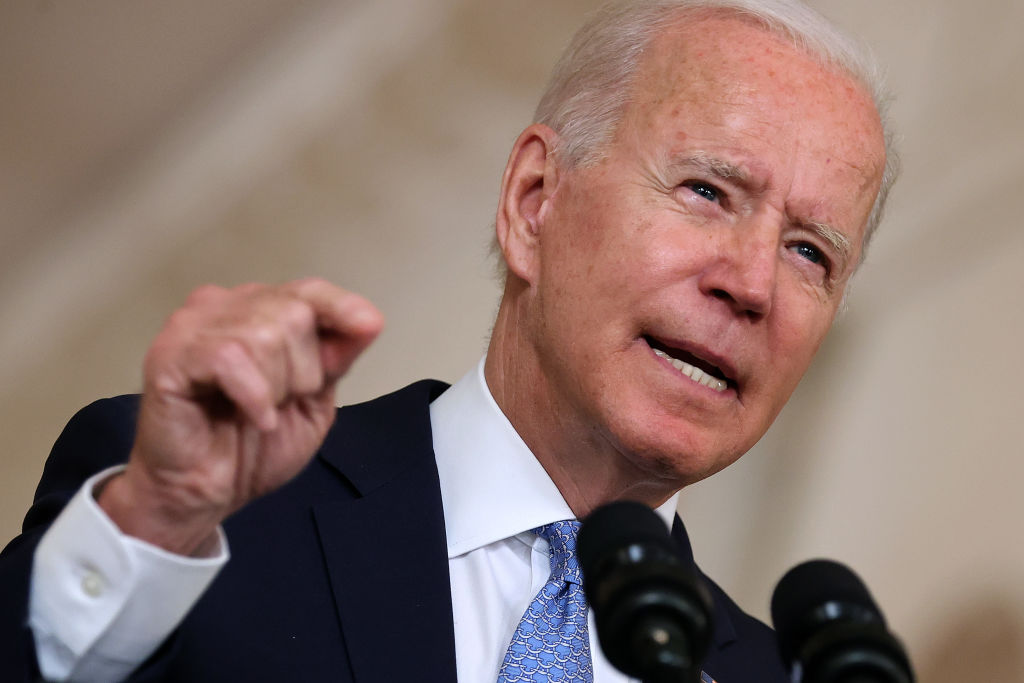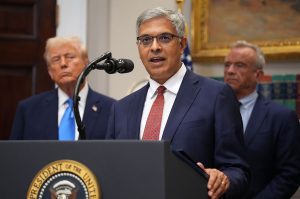President Biden’s impromptu remarks on 9/11 spoke volumes. His erratic and frequently irritated presence in recent weeks — when, that is, he has been present at all — reflects a presidency that is struggling to maintain its focus and its sense of reality.
Biden was promoted in 2020 as the candidate of restoration. Despite nearly five decades of successful operation in Capitol Hill, one of the least normal places on Earth, Biden, we were told, represented normalcy, common sense and empathy. Candidate Biden did his best to deliver all three, when his handlers let him. President Biden has delivered none of them — when, that is, he has delivered at all, for no modern president has dodged the cameras and questions so assiduously.
We are not yet a year into this presidency, but it is already in trouble. The centerpiece of Biden’s domestic agenda, a multitrillion dollar ‘infrastructure’ bill, is stalled in Congress. The latest twist in the apparently endless and very slow-moving ‘pivot to Asia’, the withdrawal from Afghanistan, was a humiliation so great that the commentators had to hash out whether it was worse than Tehran in 1979 or — how low can you go? — Saigon in 1975.
To be fair, Biden had long doubted the wisdom of ‘nation-building’ in places where no nation exists. In 2010, he is said to have told the late diplomat Richard Holbrooke that US support for women’s rights in Afghanistan was ‘bullshit’, and that the Democrats risked losing the 2012 elections if they didn’t get out. This was not empathy, but it was common sense. It is America’s tragedy, and Afghanistan’s too, that it took more than a decade for the notion to become normal inside the Beltway.
The problem, then, lies in the execution. It is not news that there is a terrible disconnect between the quasi-imperial bureaucracy in Washington DC and the inhabitants of its distant provinces. It is, however, news, that the senior echelons of the US military seem unable even to arrange the terms of their own defeat. Several Senate committees, all of them led by Democrats, have opened enquiries into the institutional failures that led to Afghan denouement. The administration should assist them.
The military and the Supreme Court are the last two institutions to enjoy a plurality of the citizens’ esteem. The court had no choice but to choose not to rule on the Texas abortion ruling, and that will not spare it from the contempt of the losing party. But the military leadership seemed disconnected from the reality on the ground, and more attuned to domestic priorities. The administration planned to close the book on the War on Terror on the 20th anniversary of the 9/11 attacks, so it could then turn to its domestic spending plans and, beyond them, the midterms.
This was not grand strategy: it was media management. And even that failed at the first test. The State Department and the Pentagon whispered against the President, and the President, when he came back from vacation, threw his advisers under the bus in a series of increasingly alarming press conferences. Biden is hardly the first president to confuse his own vindication with the national interest. But in responding to a national disaster with a mixture of meandering and belligerence, he looked petty: like Donald Trump, only weaker.
There is nothing normal about the complaints from the families of the Marines killed in the suicide bombings at Kabul airport in late August. Some of the bereaved accused Biden of a profound failure of empathy at Dover Air Force Base: repeatedly checking his watch as the coffins were being unloaded, talking over the families’ grief with anecdotes about his late son Beau, and angrily dismissing their criticism.
This wasn’t commonsense. Nor is it sensible or empathetic for the White House to support the budding career of Hunter Biden, who seems to have tired of the film format and is now flogging his shoddy canvases for up to $500,000 a pop. The creation of a supposedly ‘blind’ purchase system fits the picture of a family with its nose in the trough. The White House’s approval of this implausible fig leaf for peculation and influence-trading indicates yet another disconnect.
Biden’s White House, like Obama’s, places ‘optics’ and the approval of the New York Times over content and the public interest. But reality has a habit of reasserting itself, in Kabul as on Capitol Hill — and in the voting booths, too. The Democrats have two options for 2024: Biden and Kamala Harris, the Vice President who remembered an urgent appointment in — where else? — Saigon as it all went south in Afghanistan. Harris has never been popular, and Biden’s ratings are now below 50 percent.
In early September, Sen. Joe Manchin, the moderate Democrat from West Virginia, called for a ‘strategic pause’ in the administration’s $3.5 trillion spending proposals. This colossal bill comes after the 18-month ordeal by COVID-19 — an ordeal which the CDC and blue-state governors seem determined to extend indefinitely — and a money-printing spree historic even by the Fed’s own standards. Again, we cannot but conclude that this administration is dangerously disconnected from not just from the people it governs, but from the economic and strategic facts of life. And we cannot but conclude that we must brace ourselves. This dismal, disconnected and oddly harsh administration has set a course that will ensure more corrections by reality.

























